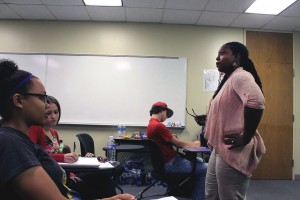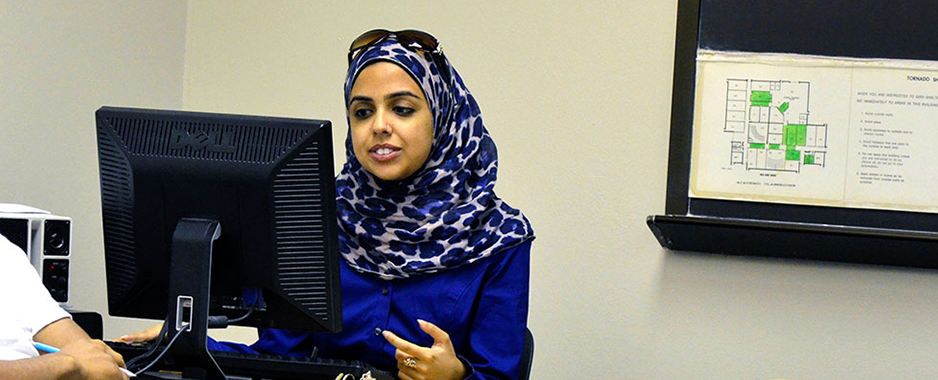By Dylan Bradley/reporter

Kim Jackson, NW associate professor of dance and humanities, knows the challenges students face and how being their own champion will help them conquer the challenge.
“You came here to learn how to be your own advocate. The first step – be known,” Jackson said as she ushered the back half of the class to the front in Be Your Own Champion.
To start, students need to change their mindset.
“This is your investment. Don’t let anyone intimidate you otherwise,” Jackson said. “Find a way to articulate to your teacher that you care about your education. Understanding that you are worth speaking up for is the first thing that needs to happen.”
The next step is being mindful. In the case of students and instructors, students should remember that instructors never have just one student, Jackson said.
“Be mindful that I have 300 students,” she said. “We have to be mindful of you. How many of you work? How many of you have families to take care of? Unless you tell me, I don’t know.”
Communicating hardships or needs to an instructor is important, Jackson said.
“You’re not special. Your situation is not unique,” she said.
Jackson drove her point home by telling her story as a single mother working full time while earning her bachelor’s and master’s degrees.
“That doesn’t mean you don’t matter. Always remember that we care,” she said.
The syllabus and ICR are the contract between the student and instructor, but sometimes professors stray from their agreement. Students should be mindful that the instructor cares about the subject, that teaching may be their life’s work, Jackson said.
“Whenever you see anger … it is a function of caring,” she said. “You never get angry about something you don’t care about.”
The next step to empowerment for students is knowing what motivates them and finding out what motivates others, Jackson said. This helps students understand what their instructor expects from them and gives instructors the power to tie lessons directly to students, she said.
After learning about motivations, Jackson moved on to modeling.
“You want to model what you’re learning. Show it off,” she said. “One of the things teachers are stressing is critical thinking. They want to see that you’re learning it. Wear it like a new outfit.”
Mobilizing is the final step to empowerment.
“Do something. Move something,” Jackson said. “All it takes is for people to be silent for things to keep going. The bad teachers are here because students allow it.”
Mobilizing is acting with empowerment and requires all other steps to be successful, Jackson said.
“If you really are mindful of those things and you start to move through these conversations, then you will be empowered to get what you want,” Jackson said. “Lazy people don’t go to college.”
School is not like purchasing a pair of shoes, she said.
“It is an investment, meaning you get out of it what you put in,” she said. “It’s heartbreaking to see students just move through college. There are so many opportunities that will just pass you by if you don’t speak up.”

























